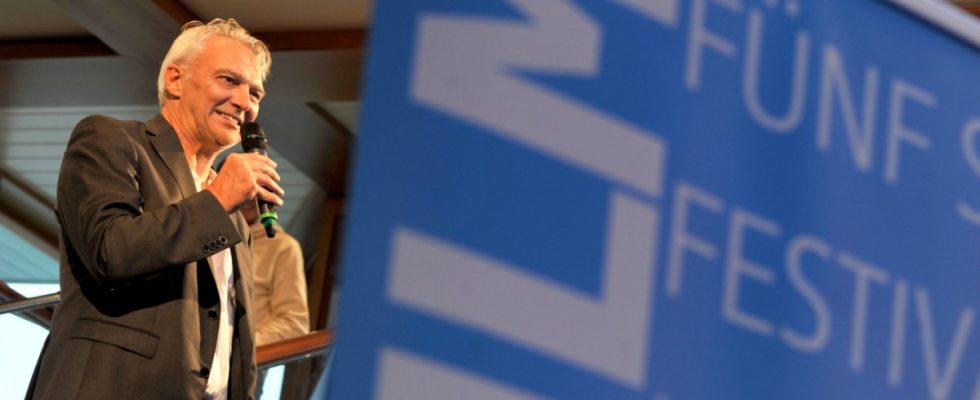Everything could be over on September 12th: one last film, one last credits, a few last conversations. And then? Shut up, film festival is dead. The Five Lakes Film Festival, one of the largest of its kind in the German-speaking region and an image-shaping for the entire region around Lake Starnberg, would then no longer exist.
At least that’s what festival director Matthias Helwig fears. “If there is not sufficient support from the district, the municipalities and the audience, then the upcoming Fünfseen film festival will be the last,” explains the organizer. Reason for Helwig’s pessimism: Due to the strained budget situation, both the city of Starnberg and the municipality of Gauting have drastically reduced their subsidies for the cultural event. Starnberg has cut from 43,700 to 23,000 euros, Gauting from 15,800 to 4,000 euros. According to Helwig, a total of just over 30,000 euros are missing. Because of the cost increases for room rentals and staff as well as inflation, there is an enormous financing gap.
Because of the lack of money, “the future of the festival from next year is at great risk,” says Helwig. The lack of funds would “substantially” affect the organization of the film festival – and possibly even make it impossible.
Helwig is now calling for a clear commitment from politicians to the future of the film festival. He explains that he can understand that the empty coffers pose major problems for municipalities everywhere. “But especially in this situation you have to ask yourself whether you want to continue having a festival with this far-reaching significance or not.” The deletions mean that compromises have to be made in terms of quality – both in the selection of guests and the compilation of the films.
Despite the tense situation, Helwig, who has so far been more or less responsible for the festival himself, is hoping for a future for the event. However, this is only possible through changes to the existing structures. Helwig advocates putting “the festival on a broader basis this year.” For example, the public sector must be more involved in organization and financing.
Helwig could also imagine setting up a group of friends who would take on certain tasks. One thing is clear: Helwig cannot and does not want to continue the current structures, which were strongly tailored to his person, in the future. Discussions with politics, business and associations will therefore be held in the next few weeks. The question will be discussed as to whether and how the film festival can continue.
Last year around 18,000 visitors were counted
Because of the cuts, this year’s edition of the film festival is already significantly narrower than its predecessors: the opening ceremony will no longer take place on the lakeshore with a view of the Alps, but in the Schlossberghalle, as was the case at the beginning of the series of events. And the annual steamboat trip, which is popular with the public, can no longer be held this year for cost reasons. These cuts are already painful for Helwig. In an interview with the Süddeutsche Zeitung in March, Helwig said that the opening ceremony and the steamboat trip were “things that made our festival famous.”
Wür
Stilt walkers on the lakeshore: With its extensive program, the opening evening was one of the highlights of the Five Lakes Film Festival.
(Photo: Franz Xaver Fuchs)
When such trademarks disappear, the character and appeal of the event are lost. “A film festival not only lives from the films that are shown there, but also from the supporting program,” explains Helwig. If funding continued to be cut, an event of this magnitude would no longer be possible at some point. In addition, right now, after the pandemic, we need to help the cultural sector, which was badly hit by Corona, get back on its feet through targeted funding.
The Five Lakes Film Festival is taking place for the 18th time this year. Over the ten days, more than 130 feature films, documentaries and short films will be shown, and there will also be a variety of film and workshop discussions. Because of the film festival, numerous stars from the industry find their way to Starnberg. Paula Beer, Maria Schrader, Charly Hübner and Margarethe von Trotta, among others, have already been guests. In addition to the prominent faces, the film festival also attracts numerous cinema fans: last year the organizers counted around 18,000 visitors.

